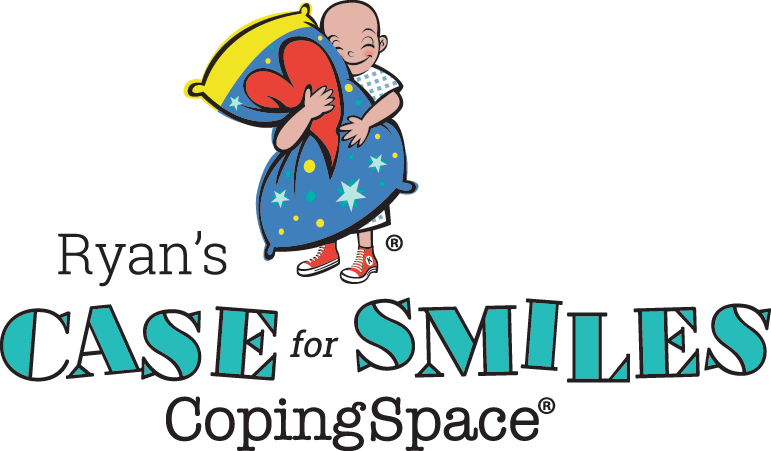TEENAGERS
Teens are more able than younger children to see the bigger picture of the illness/injury. Teens can understand more complex ideas about illness and treatment, but still need adult help to fill in gaps in what they know and understand.
Teens are more able than younger children to see the bigger picture of the illness/injury. Teens can understand more complex ideas about illness and treatment, but still need adult help to fill in gaps in what they know and understand.
 Teens often have developed coping skills for tough situations. However, when they are upset they may try to act more grown up or cover up their feelings. Many feel self-conscious or are concerned about “not fitting in” with their friends. In addition, they:
Teens often have developed coping skills for tough situations. However, when they are upset they may try to act more grown up or cover up their feelings. Many feel self-conscious or are concerned about “not fitting in” with their friends. In addition, they:
- Can feel insecure or worry that there will be a decrease in their independence.
- May worry about permanent scars or even death.
- Can respond by withdrawing or acting out (intense anger, emotional outbursts, increased aggression, etc.)
- May be sensitive to parents’ or others’ failure to prevent their illness, and can be unrealistic in their expectations of medical providers or beliefs about prognosis, recovery, etc.
- Can experience significant pain, anger, or frustration when challenged to do something that was once routine.
- May be sensitive to being excluded from discussions about their condition, treatment, etc.
 Teens often have developed coping skills for tough situations. However, when they are upset they may try to act more grown up or cover up their feelings. They may feel self-conscious or are concerned about “not fitting in” with their friends. In addition, they:
Teens often have developed coping skills for tough situations. However, when they are upset they may try to act more grown up or cover up their feelings. They may feel self-conscious or are concerned about “not fitting in” with their friends. In addition, they:
- Can feel insecure or worry that there will be a decrease in their independence.
- May worry about permanent scars or even death.
- Can respond by withdrawing or acting out (intense anger, emotional outbursts, increased aggression, etc.)
- May be sensitive to parents’ or others’ failure to prevent their illness, and can be unrealistic in their expectations of medical providers or beliefs about prognosis, recovery, etc.
- Can experience significant pain, anger, or frustration when challenged to do something that was once routine.
- May be sensitive to being excluded from discussions about their condition, treatment, etc.
Signs Your Teenager May Not Be Coping Well
Below are a few signs your teenager may be having trouble coping. If any of these go on for more than a few weeks, or bother your child a lot, you may want to seek additional help from their doctor.
Watch to see if your teen:
- Wants to be alone or with you all the time
- Becomes easily overwhelmed, jumpy or irritable
- Changes their behavior, becoming more sensitive, quiet, or talking back and getting into fights
- Has trouble sleeping or nightmares
- Misses friends or feels left out
- Develops problems in school
Ways to Help Your Teenager
- Let your teenager know that you are there to talk, whenever they want. If you’re nervous about talking about tough topics, read How to Share Bad News with Your Child for additional support. However, don’t pressure them to talk if they do not want to. This can lead to a child withdrawing even more.
- Help your teenager identify ways to cope with their feelings. Distractions can be helpful – video games, books, music, or other activities they enjoy. Depending on medical restrictions, your teen may even be able to keep up physical activities (running, sports, yoga).
- If your teenager is the sibling of your child with an illness or injury, help them find additional resources for support, such as a trusted adult or JustSibs, our interactive, digital experience to help teens and pre-teens manage the many challenges and emotions they face. JustSibs uses visual storytelling and supportive activities to assist them from their sibling’s diagnosis through treatment, and beyond
- Your teen may feel insecure or worry that there will be a decrease in their independence. Help them to ask questions of the healthcare team about the impact of the illness or treatment on their life and activities.
- Remember, although your teen can understand more complex things, it does not mean that they understand everything. Listen for how your teen is understanding their illness and treatment, and help fill in gaps or correct misunderstandings.
- Try to find ways your teenager can stay connected with their friends. Thanks to technology, there are many ways to stay connected while apart.
- Ask your teenager’s permission before friends come to visit, knowing they may feel embarrassed about how their friends may react. Also, try to think about how your teen may be feeling because they may not want to tell you.
- Your teen may feel embarrassed about what their peers may say in regards to how they look due to the illness or injury. Try to anticipate things people may say and rehearse how your child could respond. (Ex: If someone stares, they could engage the other person by giving a smile or saying hello).
- Create a plan with the school to help your teenager keep on track. Some hospitals have teachers on staff who may be able to assist with tutoring or communicating your teenager’s needs to the school.
At the Hospital/Clinic:
- Tell your teenager about any upcoming tests or procedures. Let them know if it will change how they look or how their bodies will work.
- Include your teenager in treatment decisions and other choices, when possible.
- Discuss privacy in the hospital or clinic area. Find out from healthcare staff if they can they wear their own pajamas instead of hospital clothes. They may also be able to help identify other ways your teenager can keep their independence.
Additional Information:
- How to Support Teenagers with Illnesses and Injuries
- How to Help Teens Transition to Adult Healthcare
- InvisiYouth Chat Sessions Podcast on Supporting Teens and Young Adults, Siblings Needs and Caregiver Support on YouTube, Apple and Spotify.
Useful Phrases to Use with Your Teenager
You know your teenager best, and you probably have experience, which you can draw on now, talking with them about things that are hard or challenging. The child life specialist, doctors and nurses may also have specific suggestions for how to explain their illness or treatment in terms they can understand. Here are some additional suggestions to get you started. General:
General:
- “How are you doing? Is there anything that you are worried or scared about?” “When I am worried I think it is helpful to talk to someone.”
- “If you feel like you don’t want to talk right now, how about drawing or writing about what’s happening or how you’re feeling?” “Before the illness/injury life was a little different. Let’s talk about how things have changed and what that means for (the week, month, year, lifetime).”
- “It may make you sad that things have changed and that you can no longer ________. Let’s make a list of things that you would like to do and see if there is a way to do them.”
- “Your doctor has said that you can’t go back to school yet. Let’s talk with the school about your work so you can stay on track.”
Hospital/Clinic:
- “The hospital/clinic is a new place for all of us. If you have any questions while we are there, you should ask so we can find the answers. Answering your questions is part of the doctors’ and nurses’ job!”
- Try to include your teen in decisions, whenever possible. “Your doctors have asked me a few questions about your care. This is your body and we would like to know what you think.”
- “Some medicines have to be given by using a needle. When you receive the medicine it may feel like a pinch. Your job is to hold still while nurse/doctor does their job. What do you think would help you during the procedure?” Talk with your teen about things to help distract them during the procedure, such as listening to music or watching a movie.
- Note: Find out from the child life specialists, nurses and doctors what to expect, and choose your words accordingly. It is important not to make promises (e.g. it will only be a small pinch) that are not realistic.
Types of Hospitals:
- Children’s Hospital: “We need to go to the hospital so you can get your medicines. This hospital is just for kids and young people.”
- Pediatric Floor in an Adult/Community Hospital: “We need to go to the hospital so you can get your medicines. This hospital has an area where young people, like you, are helped.” (Pediatric floor in an adult/community hospital)
- Community Hospital Without a Pediatric Floor: “We need to go to the hospital so you can get your medicine. This hospital cares for grown-ups and young people. The doctors and nurses know help to help teens, like you.”
Helping Your Teenager During Injections or Procedures
Often, the best way you can help your teenager during an injection or other procedure is with distraction. Help them look at, think about, and get involved in something else. You might have your teenager engage in a conversation, listen to music, look at a game on your phone, anything that engages your teenager’s attention.
It may seem odd, but saying reassuring things like, “It will only hurt a little”, or “You are so brave with this pain”, or “I am so sorry this is hurting you”, has actually been shown to increase pain or distress during a procedure. So focus on distraction, and praise your teenager for SPECIFIC things they are doing. (“Great job holding still and focusing on the game!”)
- You can learn more about distraction, and how to use this technique, in these “Distraction in Action” videos.
- You can also sign up for the free Distraction in Action Tool that provides recommendations based on your individual child. (Please note, this tool is designed for younger children. However much of the information is still applicable).
